Crucial Pro Series 6400MT/s Overclocking Memory Review
Author: Dennis GarciaBenchmarks - Synthetic
AORUS Z790 Elite X Wifi 7 – Z790 Chipset
Intel Core i9 14900k (3.0Ghz) Twenty Four Core 8 x 48KB L2 Cache 8 x 2MB L3 Cache 36MB
Cooler Master MasterLiquid PL360 Flux
1x nVidia RTX 3070 Ti
Patriot P200 512GB SSD
HP dvd1260i Multiformat 24x Writer
Thermaltake Toughpower PF3 1050 Watt PSU
Windows 11 Pro 64bit
Memory Tested
2x Crucial Pro OC Edition PC5 6400 (38-40-40-84)
2x Crucial Pro OC Edition PC5 6000 (36-38-38-80)
2x Lexar Ares PC5 7200Mhz 32GB (34-38-38-84)
2x Patriot Viper Elite 5 PC5-48000 DDR5 48GB (40-40-40-77)
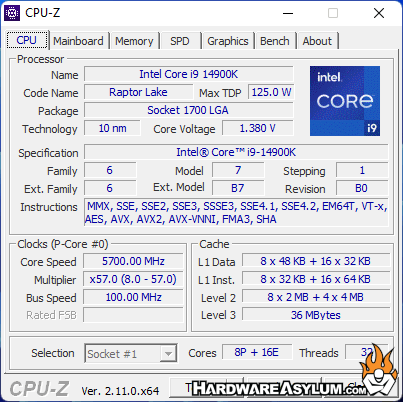
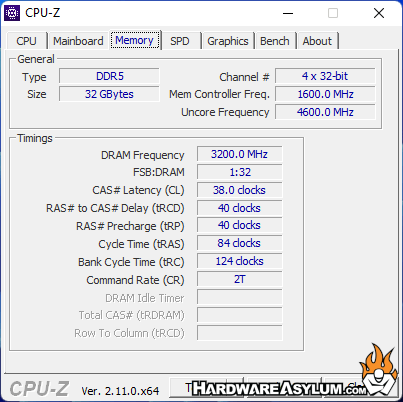
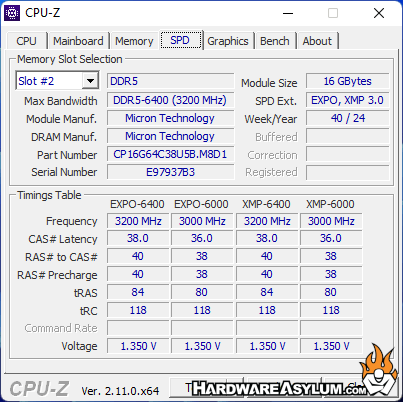
Sandra is a software collection of synthetic benchmarks that will give us a basic idea as to what a system is capable of. It should be noted that SiSoft numbers change depending on what hardware is being tested. These were recorded using Sandra Professional Version 31.115.2021.12
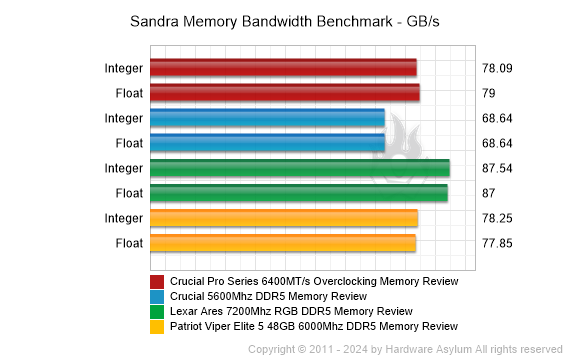
AIDA64 Extreme Edition is a streamlined diagnostic and benchmarking software package designed to assist with overclocking and general system tuning. The package also contains modules to assess the performance of the processor, system memory, and disk drives in addition to normal stuff like stress testing and troubleshooting.
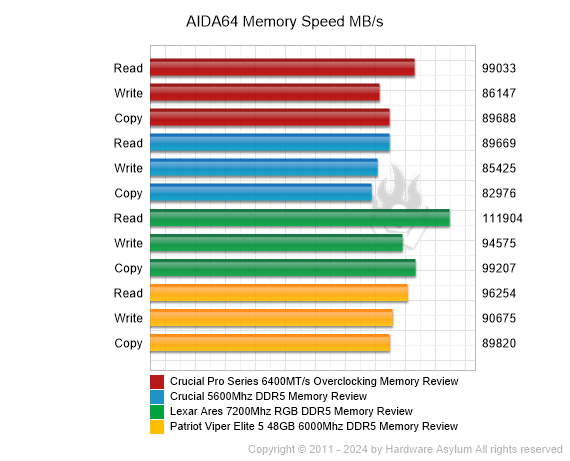
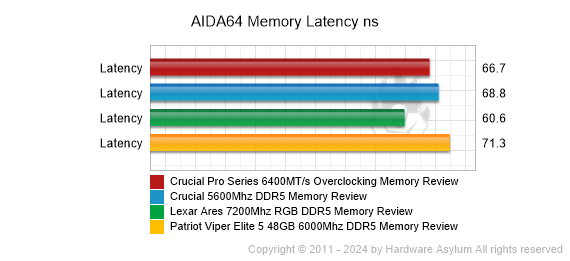
Unigine is a synthetic benchmark much like 3DMark Vantage, but supports the newest of DirectX 11 technologies. The benchmark comes with lots of heavy tessellation and soft shadows to work the more flexible shaders found on DirectX 11 graphic cards. This makes this benchmark ideal for seeing exactly what a best case scenario might look like for a DirectX 11 capable GPU.
Benchmark Settings
HWBot Benchmark
DirectX 11 Presets
DirectX 9 Presets
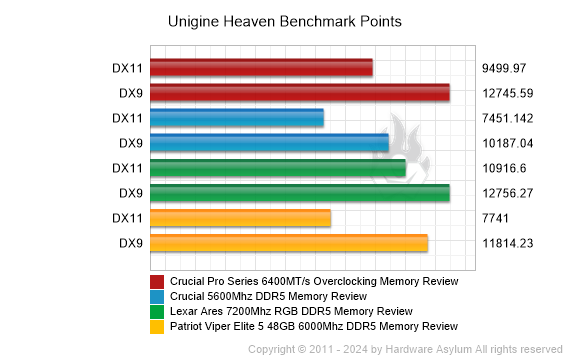
SYSmark 25 is an application-based benchmark that reflects usage patterns of business users in the areas of Productivity, Creativity and Responsiveness. The new Productivity Scenario has updated workloads and applications geared towards office centric user activities. The new Creativity Scenario features updated workloads and applications geared toward media-centric user activities. The new Responsiveness Scenario models ‘pain points’ in the user experience. These common activities that include: application launches, file launches, web browsing with multiple tabs, multi-tasking, and background application installation.
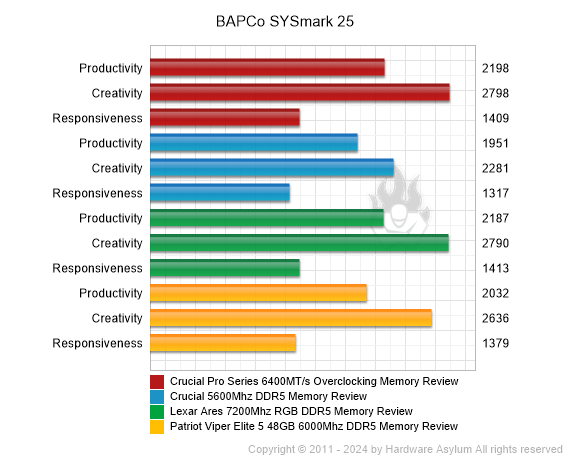
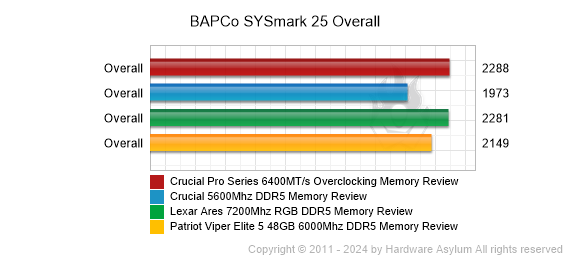
PCMark 10 is an overall system benchmark to measure and compare PC performance using real-world tasks and applications. Similar to 3DMark this new version tests the entire system as a whole using applications that reflect typical PC use in the home and at the office. This approach ensures that PCMark measures the things that matter, highlighting performance differences that will be apparent to end users and consumers.
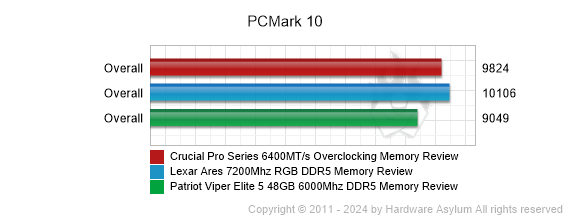
The benchmark results are quite telling and follow the logical conclusion that faster memory generally provides you better performance. As you would expect, the jump from 6000MT/s to 6400MT/s is quite small though becomes more pronounced when you start to consider slower modules in the 5000MT/s range and modules in the 7000MT/s range.

